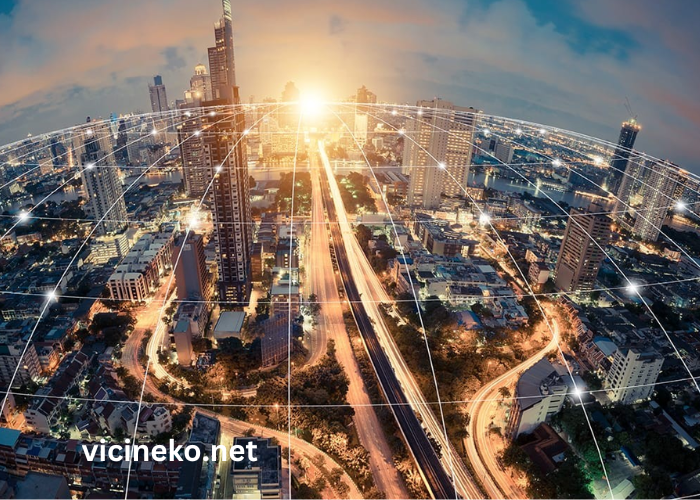In the age of rapid technological advancements, cities are transforming into smart hubs of connectivity, efficiency, and sustainability. Smart cities leverage technology to address urban challenges, improve residents’ quality of life, and ensure sustainable growth. This article explores how smart cities are reshaping urban living, highlighting their potential, challenges, and future prospects.
Introduction to Smart Cities
Smart cities integrate digital technology and data analytics into urban planning to enhance infrastructure, services, and overall quality of life. By addressing challenges such as traffic congestion, energy consumption, and pollution, smart cities are paving the way for sustainable and efficient urban living.
Defining Smart Cities
A smart city uses technology and data-driven insights to optimize resources and improve living standards. Key elements include smart governance, mobility, energy, healthcare, and communication systems, all interconnected to create a seamless urban experience.
The Role of IoT in Smart Cities
The Internet of Things (IoT) is at the heart of smart cities. Sensors, devices, and networks collect and analyze data in real-time, enabling efficient resource management, predictive maintenance, and improved decision-making for city planners and administrators.
Smart Transportation Systems
Transportation is a critical component of smart cities. Technologies like intelligent traffic management systems, autonomous vehicles, and shared mobility services reduce congestion, enhance public transit efficiency, and minimize environmental impact.
Energy Efficiency in Smart Cities
Smart grids, renewable energy integration, and energy-efficient buildings are transforming urban energy use. These innovations reduce waste, lower costs, and promote a sustainable approach to energy consumption.
Waste Management and Recycling Innovations
Smart cities are addressing waste management challenges with sensor-based bins, AI-driven sorting systems, and waste-to-energy technologies. These advancements help cities manage waste sustainably while reducing landfill reliance.
Water Management and Conservation
Smart water systems use sensors and analytics to monitor water quality, detect leaks, and optimize distribution. These technologies ensure efficient water use, conserve resources, and address urban water scarcity challenges.
Healthcare in Smart Cities
Digital health initiatives, telemedicine, and AI-powered diagnostics are making healthcare more accessible and efficient in smart cities. These technologies improve patient outcomes and reduce the burden on urban healthcare systems.
The Role of AI in Urban Planning
Artificial intelligence enables better urban planning by analyzing data on population growth, traffic patterns, and environmental factors. AI-driven insights help cities optimize land use, infrastructure development, and service delivery.
Enhancing Public Safety with Smart Technology
Smart surveillance systems, emergency response networks, and predictive policing enhance urban safety. These technologies enable real-time monitoring and faster response times, creating safer environments for residents.
Sustainability and Smart Cities
Sustainability is a core goal of smart cities. From reducing carbon footprints to promoting green spaces, technology-driven initiatives ensure urban areas grow responsibly while preserving natural resources.
Citizen Engagement in Smart Cities
Smart cities prioritize citizen participation through digital platforms and mobile apps. These tools allow residents to report issues, access services, and contribute to decision-making processes, fostering a sense of community ownership.
Challenges Facing Smart Cities
Despite their promise, smart cities face challenges such as high implementation costs, data privacy concerns, and technological disparities. Addressing these issues is crucial to ensure inclusive and equitable urban development.
Future Trends in Smart Cities
Emerging trends like 5G connectivity, blockchain, and AI integration are shaping the future of smart cities. These technologies promise even greater efficiency, security, and interconnectivity in urban living.
Conclusion: The Impact of Smart Cities on Urban Living
Smart cities represent the future of urban living, blending technology, innovation, and sustainability. As cities embrace smart technologies, they must address challenges while ensuring inclusivity and environmental stewardship. By doing so, smart cities can create a harmonious balance between modernity and sustainability, setting a new standard for urban development.

